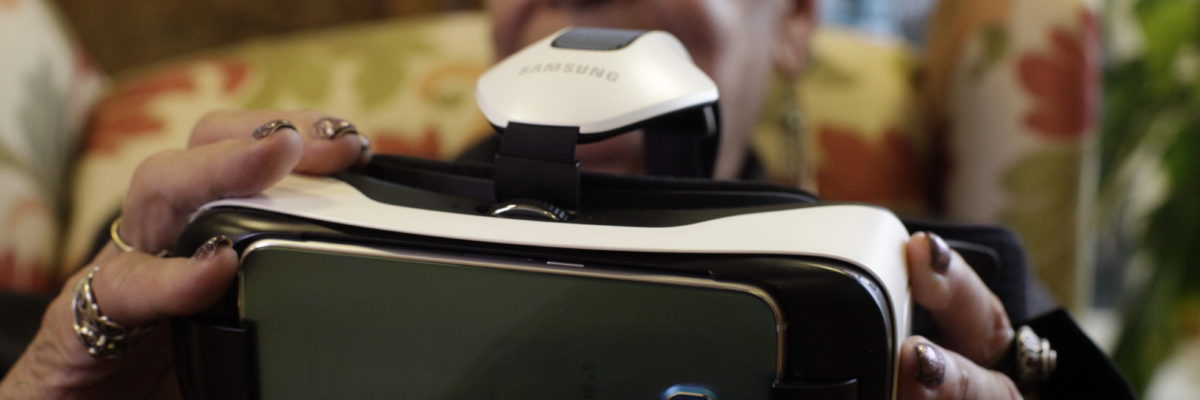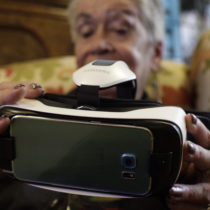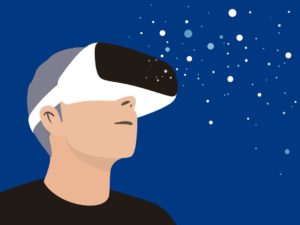Virtual Reality in Therapeutic Recreation
The use of virtual reality has come a long way since first iterations in the 1960s. Nowadays it has become widely available and scientifically proven to be not only enjoyable but beneficial, particularly with the elderly population.
Through our own experience in the aged care sector, diversional and reactional therapies have shown to be beneficial by restoring, remediating and rehabilitating a person’s level of functioning and independence in life and thus, improving health, wellness and an overall quality of life. However, this is not always possible with all people. Those experiencing compromised mobility or those who for any reason cannot interact with the outside world cannot fully partake in this therapeutic recreation.
Our solution to this problem is virtual reality (VR). By providing a large demographic with the resources to partake in recreational therapy without needing the physical ability usually required to participate in hands on activities, VR removes the barriers preventing many elderly people from participating in therapeutic recreational activities. Not only does VR allow for the user to experience things they’ve never seen before, but also can be used to improve cognitive function and problem-solving skills (Hwang & Lee, 2017). This is achieved through the variety of applications that can be used with VR devices. Furthermore, maintaining and further developing these skills can aid in the prevention or delay of things such as dementia through the long-term potentiation (LTP) that takes place during learning. LTP has shown to have a positive effect on neuronal tissue, and therefore aiding in the prevention of dementia (Youssef & Addae, 2002).
Additionally, many recent studies have been conducted into how virtual reality can be beneficial in the training of motor control in the elderly (de Bruin, Schoene, Pichierri, & Smith, 2010). This is done through the indoor activities taking place using VR, which resulted in an increase in positive perception on physical activity as a whole. The VR activities conducted had a positive influence on posture control through the development and maintenance of balance and orientation (Hwang & Lee, 2017).
The combination of game-like exercises and cognitive challenges are not only enjoyable but also have their place in increasing physical activity levels in the elderly population as well as improving cognitive function and motor skills in recent scientific studies, however there would need to be more definitive studies undertaken to further substantiate these results.
If you want to learn more about how to maximise these benefits, read our post on How to Maximise the benefits of VR for Seniors
Daniel Gray
Aged Care Virtual Reality
Reference:
de Bruin, E. D., Schoene, D., Pichierri, G., & Smith, S. T. (2010). Use of virtual reality technique for the training of motor control in the elderly. Zeitschrift Für Gerontologie Und Geriatrie, 43(4), 229–234. https://doi.org/10.1007/s00391-010-0124-7
Hwang, J., & Lee, S. (2017). The effect of virtual reality program on the cognitive function and balance of the people with mild cognitive impairment. Journal of Physical Therapy Science, 29(8), 1283–1286. https://doi.org/10.1589/jpts.29.1283
Youssef, F. F., & Addae, J. I. (2002). Learning may provide neuroprotection against dementia. The West Indian Medical Journal, 51(3), 143–147. Retrieved from http://www.ncbi.nlm.nih.gov/pubmed/12501538




